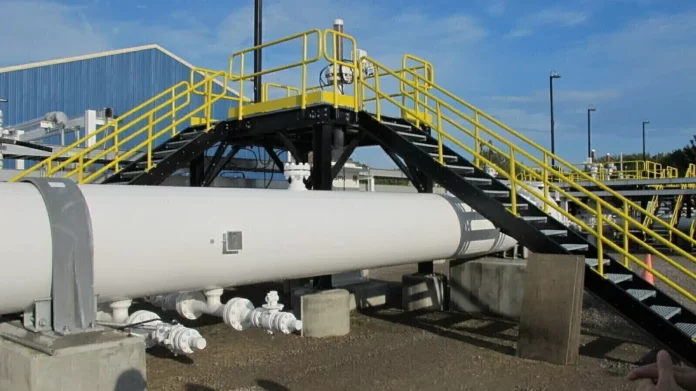The Supreme Court of the United States made a significant ruling last week that has reshaped the way the federal government views fossil fuel infrastructure in the country. This decision has brought a ray of hope for those who have been fighting for environmental causes for a long time. In the case of Seven County Infrastructure Coalition v. Eagle County, the court unanimously ruled in favor of the infrastructure coalition, stating that projects such as coal mines and pipelines should not be labeled as “carbon bombs” by environmental groups.
This decision marks a significant shift in the government’s perception of fossil fuel infrastructure and its impact on the environment. The term “carbon bomb” has been used by environmental groups to describe projects that contribute to the increase of greenhouse gas emissions and accelerate climate change. However, the Supreme Court’s ruling highlights the need for a more nuanced approach to evaluating the impact of such projects.
The case originated from a dispute between the Seven County Infrastructure Coalition, a group representing the interests of rural Utah counties, and the Eagle County, a local government body in Colorado. The Seven County Infrastructure Coalition had proposed to build a 110-mile natural gas pipeline that would transport gas from a hub in western Colorado to a terminal on the eastern border of the state. However, the Eagle County denied the coalition’s request for a permit, citing concerns about the project’s environmental impact.
The coalition then appealed to the Supreme Court, and the court’s ruling in their favor has been hailed as a victory for the fossil fuel industry. The decision emphasized the need for a more comprehensive evaluation of the environmental impact of such projects, rather than labeling them as “carbon bombs” based on their association with fossil fuels.
The ruling has been welcomed by several industry groups, who see it as a step towards promoting economic growth and job creation. They argue that the absence of such projects can have a detrimental effect on the economy, particularly in rural areas. The Supreme Court’s decision has provided a much-needed boost to the industry, which has been facing backlash and opposition from environmental groups for a long time.
The Supreme Court’s ruling has also been praised by some environmentalists, who believe that a more nuanced approach is necessary to tackle the issue of climate change. They agree that labeling projects as “carbon bombs” can be counterproductive as it leads to a more polarizing debate. This ruling has opened the door for a more collaborative approach between the government, industry, and environmental groups in finding solutions that balance economic growth with environmental concerns.
Moreover, the court’s decision has highlighted the importance of considering local factors when evaluating the impact of such projects. The Seven County Infrastructure Coalition’s project, for instance, has been deemed essential for the economic development and energy security of the rural Utah counties it represents. The Supreme Court’s ruling acknowledges this aspect and emphasizes the need for a more localized and contextual assessment of such projects.
The ruling has set an important precedent for future cases involving fossil fuel infrastructure. It encourages a more comprehensive approach to evaluating the environmental impact of such projects, rather than dismissing them as “carbon bombs” based on their association with fossil fuels. This decision signals a shift towards a more balanced and inclusive approach to addressing environmental concerns.
In conclusion, the Supreme Court’s ruling in the case of Seven County Infrastructure Coalition v. Eagle County has reshaped the government’s perspective on fossil fuel infrastructure. It has emphasized the need for a more comprehensive and collaborative approach to evaluating the impact of such projects. This decision is a significant step towards addressing the complex issue of climate change while promoting economic growth and job creation.

